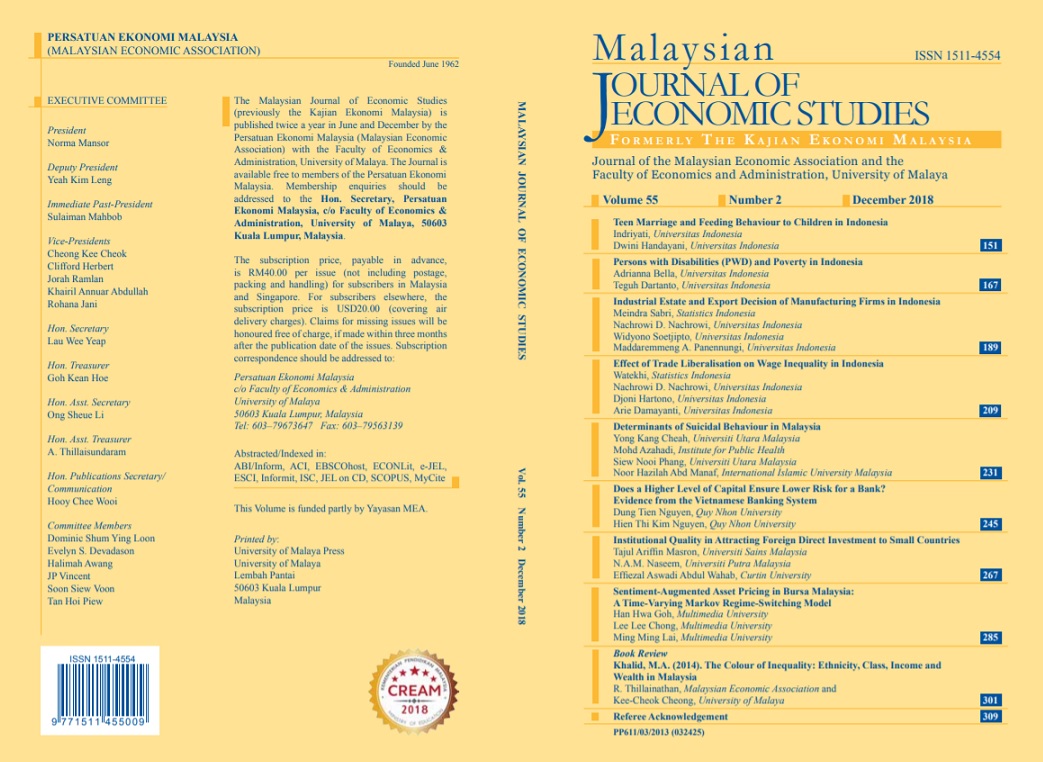Sentiment-Augmented Asset Pricing in Bursa Malaysia: A Time-Varying Markov Regime-Switching Model
DOI:
https://doi.org/10.22452/MJES.vol55no2.8Keywords:
Asset pricing, Bursa Malaysia, investor sentiment, time-varying Markov regime-switching modelAbstract
This paper examines the nonlinear effects of investor sentiment on asset pricing in Bursa Malaysia. The Fama and French three-factor model is re-augmented within a time-varying Markov regime-switching framework to investigate the three risk premiums, conditioned by four different proxies for investor sentiment (i.e. market-wide indicators). The study finds evidence that the stock returns movement of Bursa Malaysia exhibits a nonlinear two regimes pattern. Besides, changes in the investor sentiment to some extent function as a mediator in the regime switching dynamics between bear and bull market cycles in Malaysian stock returns. It is also found that an increase in positive sentiment of investors leads to a higher transition probability of regime switching during bear markets. In addition, the three risk premiums are time-variant, contingent upon the fluctuation of the proxies for investor sentiment within discrete regimes. The study finds that in general, the market premium falls when the stock market switches from bull to bear markets. On the contrary, both the size and value premiums increase when the stock market moves from bull to bear markets.

